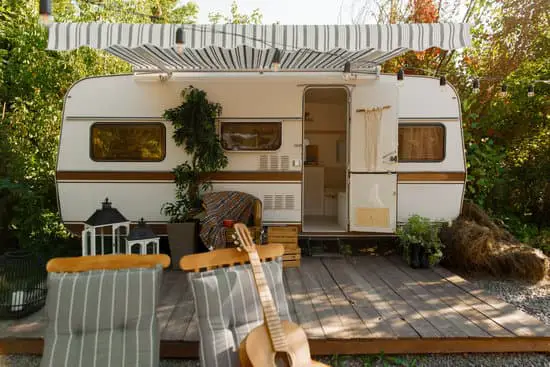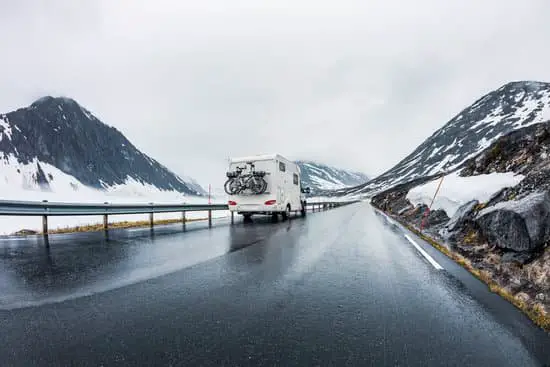Financing an RV is a great way to enjoy the open road without having to worry about breaking the bank. However, there are some restrictions on financing vehicles that you need to be aware of before signing any papers. In this blog post, we will go over how old of an RV can you finance as well as other things you should know when going through this process!
How old of an RV can you finance? Typically lenders will not finance an RV that is older than 15 years. If you want to buy an older RV, then your best option is either a credit union or personal loan which can be harder if you have bad credit.
What else should I know when going through the process of financing an RV? You will need to have a good, steady job that you can prove. Lenders also require proof of residence and car insurance for your other vehicle. If these requirements are met then it is just a matter of gathering up paperwork, providing down payment money, and securing any necessary insurance coverage!
What credit score do you need to finance an RV?
If you would like to have access to the best rates and terms, your lender will most likely require that you have at least 670. However, if this number isn’t something you can achieve right now with all of your other priorities in life then don’t worry! You may still be eligible through certain lenders who are willing to offer loans with a lower requirement than what they usually ask for.
What are the benefits of financing an RV?
For one thing, financing your new or used recreational vehicle means that you won’t have to worry about having enough money for a down payment. You also get all kinds of protection against mechanical breakdowns and accidents by insuring it with the lender!
This is something only certain lenders can offer–so if this appeals to you then make sure to ask what kind of insurance they can provide before committing yourself to any terms.
How hard is it to get RV financing?
Securing financing for an RV could be more difficult than getting approved for a car loan. This is due to lenders’ stringent requirements, such as debt-to-income ratio and employment history being considered. While some offer programs that serve those with “rocky” credit, these will likely look at many other factors in the process of approving your application.
If in doubt look for specialist RV lenders that cater to the industry and specialize in financing RV purchases.
Why Might I Need a Specialized Lender?
Lenders who focus on RV loans are most experienced with the vehicle and will be able to answer questions about different aspects of its use, such as how it compares to other vehicles or what kind of fuel mileage it gets. They also have relationships with dealerships-which means they’re more likely than smaller banks or credit unions (though these may offer RV loans too!) to quickly approve your application when you find the perfect one for you!
Can I get a 20 year loan on a used RV?
On average, RV loans range from 10-15 years but many banks and other finance companies will extend the term up to 20 on qualified collateral.
If you want to finance more than that, I recommend looking into whether or not refinancing your current vehicle makes sense. It’s also worth checking if there are any tax incentives for financing long-term loans on vehicles as they do exist depending on where you live and how much money you make.
Some side notes: There has been some confusion over what it means when someone says “finance”. We refer to all types of credit lines in this article but people often mistakenly think we mean only car loans because that’s typically the type of debt made available from lending institutions like banks and credit unions.
Can a RV be a tax write off?
The Internal Revenue Service has very specific guidelines for business use tax deductions, including the RV tax write off. More than 50% of the nights spent in the RV must be for business, and you can’t stay in it for more than 30 days at a time this could get complicated if your work schedule is unpredictable – but that’s what makes an RV so great!
The IRS recognizes the value of these vehicles and will give you a deduction on your taxes up to $25,000. If that’s what you need – then go ahead and get one.
Is it better to finance or pay cash for an RV?
If you’re considering purchasing a camper and are more patient than wealthy, save for it. A $10,000 loan financed over 5 years at 4% interest would have a payment of about $185 per month. If you saved that same amount every month instead (and didn’t go on any vacations), after 54 months (4 1/2 years) your savings will be enough to pay cash in full!
That’s an extra thousand dollars or so in the bank just waiting for emergencies – not including all those priceless memories from adventures with friends and family along the way.
If you’d rather have your camper now, it’s possible to get pre-approved and then finance the purchase. There are all sorts of financing options available for a new (or even used) RV nowadays – from banks, dealerships, and credit unions. You’ll need to do some research on rates etc so that you can be sure what rate is best for your situation.
When considering an RV loan remember:
The old rule about only being able to borrow 80% of the value has been long gone since 2008! These days there are no such limitations which mean buyers will often end up with more than they’re qualified or comfortable borrowing resulting in costly monthly payments. Loans should also consider insurance requirements as well as gas mileage.
How much is a down payment on an RV?
If you’re looking for an RV, it’s important to know that a down payment is usually required. Lenders who offer these loans require at least 10% of the purchase price as a down payment; other lenders might be more stringent and ask for 20%. A larger percentage will reduce your monthly payments over time and could even earn you lower interest rates on your loan!
A down payment is the amount of money that a buyer pays to purchase an asset in order to secure it. The percentage of the total price, which may vary depending on the type and class of good or service purchased, typically ranges from 20% for large items such as cars and houses to less than one percent for smaller goods: candy bars or soft drinks.
In most cases, buyers are required by law to make a minimum down payment before they can take ownership of certain property (such as vehicles). This protects the seller if the buyer defaults on their payments. Many sellers offer “no-down-payment” options; however, these loans usually have higher interest rates because there’s no protection against defaulting on your loan.






